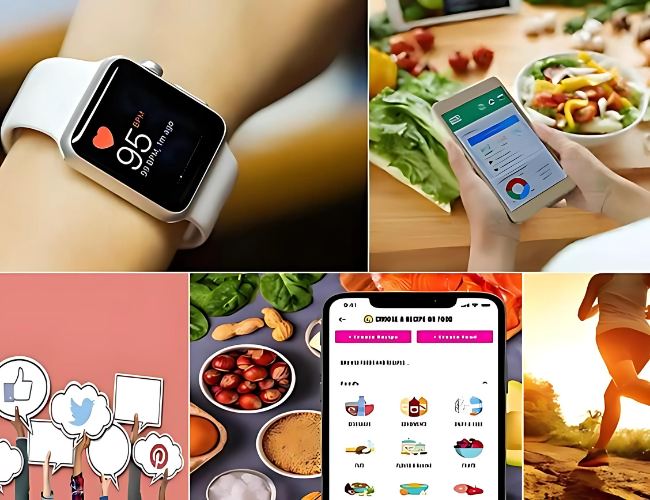Data-Driven Nutrition Planning: Smart Diet Plans For Better Results
In the fast-paced field today, there is simply no way to effectively plan nutrition without considering using innovative new tools and technologies. As a nutrition practitioner, you can only increase client satisfaction and further health outcomes through data-driven strategies. In this blog, I’ll share with you how to revolutionize your approach to nutrition planning, develop personalized smart diet plans for your clients, and engage them at just the right level. By focusing on data-driven nutrition planning and creating tailored smart diet plans, you can help foster a more successful practice.
Getting Started with Nutrition Planning
Nutrition planning forms the heart of patient-centered care. Every client has different needs, likes, and health goals that make personalize approaches necessary. The process may be streamlined by making the process of gathering and analyzing such information easier to tailor your approach to each person. How can you improve nutrition planning?
Provisional Assessments
Use general assessments to ensure the whole food intake, medical history, and lifestyle is covered. That’s how you can create smart diet plans for each client, based on data-driven foundational information. But using lots of assessment tools will make the process much easier and enable you to draw deep details without putting a burden on the client. Having a clear idea of what each person brings provides the guarantee of personalized nutrition planning, according to the circumstances of your clients.

Food Tracking Apps Like Fitrofy
A good way to develop proper nutrition planning for patients is by using food diaries. Encouraging the patient to keep a track of their meals for the day would let them realize the kinds of eating habits they have during such a long period of time. This tracking would be analyzed further to determine their consumption patterns, and some changes would be in order to recommend them that would be in line with what they intend to achieve concerning their health.
It essentially means that these diet plans would be aligned with their real preferences and lifestyle. The more comprehensive your food diary, the easier you can be to diet-plan with realistic and sustainable approaches.
Setting Client Goals
Set concrete, measurable goals, such as pounds lost or increased energy levels. Monitor the goals in real time as done to further motivate and hold yourself and/or others accountable, even allowing the development of relevant diet plans and eating recommendations for each individual. A target such as losing a certain number of pounds per week can provide clear objectives that clients may use when working toward them. Regular follow-ups to discuss progress can remind those clients of their commitment to the goals and your nutrition planning process.
Why a Winning Diet Plan?
Set Specific Goals: Measurable objectives make the client stay focused and track their activities. With what they have chosen to measure, you can ensure that they remain motivated and committed to the smart diet plans. The clients will be more confident with the landmarks and tiny wins.
Ensure Diversity: Include meal options that are seasonal and culturally appealing. This will help add variety to meal experiences, keeping the clients interested in their diets. A diet with too much repetition can create disengagement. It is required to provide clients with a wide spectrum of healthy options which will be able to sustain interest for a longer time.
Make use of Technology: The accountability and action data will be achieved with leverage technology. Monitoring adherence to a smart diet plan allows making adjustments to ensure satisfaction in clients. Leverage apps and tools that let the client input into his or her meal and also monitor the progression with evidence of ownership in his or her nutrition journey.

Flexibility: Knowing that the unexpected is part of life, your nutrition planning approach must ensure flexibility in changing client needs as well as keep the clients involved without feeling bound down. Your willingness to adjust in real time allows your approach to be more dynamic and tailored to the client.
Using Client Information for Better Nutrition Planning Outcomes
Improvement of your nutrition practice can be facilitated by properly utilizing client information in the following ways:
Pattern Recognition
Review client data for weight loss or for adherence to the meal plan. All knowing patterns of behaviors will be helpful in creating effective decisions, hence continually improving outcomes for your clients. For example, if a client poorly responds to specific foods you include in the diet plan, you may change the diet plans to increase success.
Behavioral Insights
With this monitoring of your client engagement, you can sense their dedication to your services. The more engaged they are, usually, the more successful they will be in their efforts; this gives you an idea of the kind of support you must provide. Determining patterns in app usage or meal logging can indicate that some clients need more encouragement or support from you.

Personalization
Client information ensures that changes to meal plans are done effectively. By replacing ingredients that are unappealing to the client, diet plans are not only effective but also enjoyable. Personalized nutrition plans also entail a better understanding between the client and the nutrition plan. This results in better adherence.
Monitoring of Goals
By using motivational tools, reports on the progress of the clients will be generated so that commitment to smart diet plans will be continued. Regular review will prove what needs improvement and what goes right, keeping the client interested in their nutrition planning.
How to Leverage Technology to Scale Your Nutrition Planning Practice
Scaling your nutrition practice well requires innovative technology. Here are the ways to optimize operations:
Nutrition Software Integration
Implement an integration to other solutions so that all data coming from your nutrition planning software is compiled, allowing you to handle and track client records much better. This will give you plenty of time and energy for actual care delivery, rather than sinking it in back-end administrative processes.
Telehealth Services
Virtual appointments expand your reach and enable you to continue to offer personalized service to clients outside of the area in which you live. Telehealth can be tapped into reach new populations and assist clients who might otherwise face difficulty accessing your services.

Community Outreach
Establish a community of shared interest through recipes, tips, and success stories that can foster inspiration and motivation for the clients. The development of a support environment may be motivating accountability and participation among your clients.
Feedback Channels
Utilize the tools for collecting client feedback to enable you to adjust services according to what your clients need. Continuous feedback may indeed guide your effort in providing nutrition planning and help you modify your approach over time.
Best Communication Practices for Effective Nutrition Planning with Clients
Client involvement is a determinant of long-term success. Leverage these best practices to improve on communication:
Relationship Building
After making a connection, use messaging tools to establish trust and loyalty through regular communication. Regular check-in touch points enhance experience for the client and create a professional relationship.
Virtual Group Sessions
Host sessions where clients may share their wellness journeys, encouraging mutual support that inspires everyone. Group dynamics may encourage a sense of belonging and commitment to shared health goals.

Social Media Activities
Keep your social media vibrant with success stories and tips that resonate with your audience. Engaging content can motivate clients and reinforce their commitment to smart diet plans.
Personalized Communication
Varying your communication creates the impression that you value and are paying attention to them, which increases overall customer satisfaction. Personalized messages can make a client feel supported on their nutrition journey.
Incentives Program
Reward clients on milestones achieved for consistent engagement of their nutrition planning. Incentives may get the client motivated and celebrate their successes, too.
Measuring Success
To measure success for your practice measure by:
Retention Rates
Client Retention Monitoring is a technique that may be used to monitor the satisfaction level. High retention rates indicate that clients like the kind of support they get, and this support portrays well your nutrition planning approach.
Satisfaction Scores
You will monitor client satisfaction by tools for reviewing. That enables necessary adjustments to service. Knowing how your clients feel about services means that you can know which way your nutrition planning strategy should go.

Achievement of Goals
Analysis of client progress toward health goals provides you with an even better view of how to make nutrition plans more individualized. Creation of a sense of accomplishment and accountability comes through tracking what is accomplished.
Health Markers
It is by monitoring health markers, such as blood pressure, that you can measure the effect of your interventions-therefore offering an even clearer view of what is happening at client ends. Monitoring these measures may emphasize the soundness of some diet plans and validate the efficiency of the work done in nutrition planning.
By keeping a close watch on those metrics, you will be able to get many valuables insights into your practice and how you could continually enhance the outcomes for your clients.
Conclusion
Scaling a nutrition practice calls for data-driven care. Advanced nutrition planning and smart diet plans are what will carry your nutrition planning expertise to the next level.
With an answer like Fitrofy, you can transform your nutrition approach into a smart, empowering model for both you and your clients. Reach out to Fitrofy today to take your nutrition practice to the next level and build sustainable growth.
Prioritize health and well-being with an easy-to-use solution! The Smart Diet Planner supports daily wellness and energy. Discover the benefits of better health habits today.
Download now or reach out at dietitian@smartdietplanner.com |
+91-7037679715 | https://business.fitrofy.com/
